Exploring Soweto’s rich history through a guided bicycle tour offers an immersive and thought-provoking experience. Cyclists can trace the steps of trailblazers like Nelson Mandela and Desmond Tutu, learning about the resilience and courage that defined the anti-apartheid movement. From visiting iconic sites to uncovering pivotal moments, this unique tour provides a deeper understanding of the struggles and sacrifices that paved the way for a more just society. By pedaling past vibrant neighborhoods, participants gain a firsthand glimpse into Soweto’s vibrant community, leaving them with a newfound appreciation for South Africa’s complex, yet inspiring, past.
Key Points
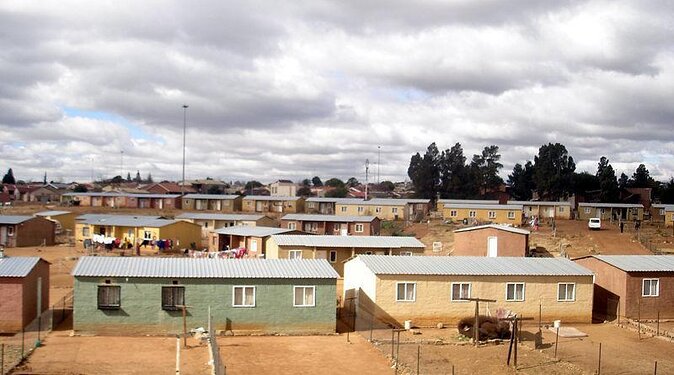
- The Soweto Bicycle Tour offers an immersive and poignant exploration of the history of apartheid, highlighting the resilience and courage of the anti-apartheid movement.
- The tour visits the former homes of iconic figures like Nelson Mandela and Desmond Tutu, providing a deeper understanding of their personal lives and struggles.
- Participants can learn about the pivotal 1976 student uprisings at Orlando West High School, which sparked a nationwide movement for equal rights.
- The tour showcases the vibrant Soweto community, allowing visitors to experience the rich cultural heritage and resilience of the residents.
- Cycling through the streets of Soweto brings the history to life, offering a unique and immersive way to explore the legacy of the anti-apartheid struggle.
Exploring Soweto’s Apartheid History
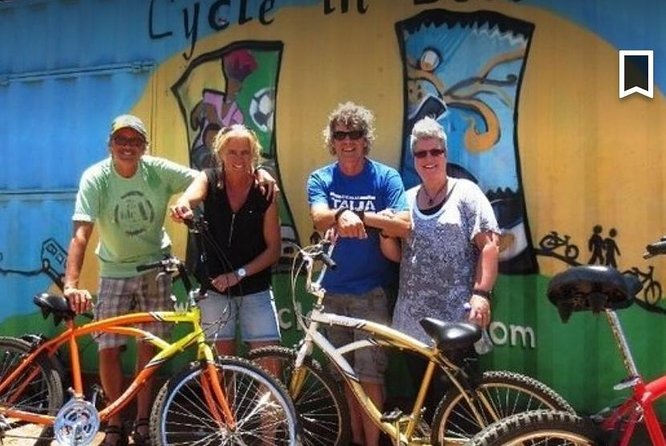
On the Soweto bicycle tour, participants explore the poignant history of apartheid, unraveling the complex narratives that shaped this iconic township. The tour takes cyclists past the former homes of trailblazers like Nelson Mandela and Desmond Tutu, places that witnessed the sacrifices and struggles of the anti-apartheid movement.
At Orlando West High School, the group learns about the 1976 student uprisings, a pivotal moment that galvanized the fight for freedom. With each pedal stroke, the guide brings to life the stories of resilience, courage, and the indomitable human spirit that defined Soweto’s role in South Africa’s journey towards democracy and equality.
You can also read our reviews of more tours and experiences in Johannesburg.
Visiting Nelson Mandela’s Former Home
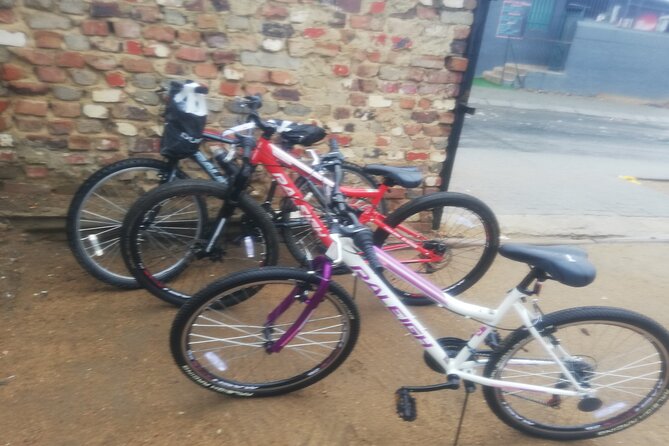
As the tour winds its way through the historic streets of Soweto, participants have the opportunity to visit the former home of the iconic Nelson Mandela, a poignant reminder of the sacrifices and struggles that defined the anti-apartheid movement.
The modest two-room house on Vilakazi Street, where Mandela lived with his first wife, Evelyn, and their children, has been transformed into a museum that offers a glimpse into the personal life of one of the world’s most celebrated leaders.
Visitors can explore the modest rooms, see Mandela’s modest furnishings, and gain a deeper understanding of the man behind the legend who dedicated his life to the fight for freedom and equality.
Learning About the 1976 Student Uprisings
The bicycle tour also includes a visit to the Orlando West High School, where participants can learn about the pivotal 1976 student uprisings that marked a critical turning point in the anti-apartheid struggle. Sparked by the introduction of Afrikaans as the primary language of instruction in black schools, the protests quickly escalated into a nationwide movement as students demanded equal rights and an end to the oppressive apartheid system. The tour provides a poignant opportunity to reflect on this historic event and its lasting impact on South Africa’s journey towards democracy.
| Key Figures | Role |
|---|---|
| Hector Pieterson | Killed during the protests, becoming a symbol of the uprising |
| Tsietsi Mashinini | Student leader who organized the initial demonstrations |
| Steve Biko | Influential anti-apartheid activist who inspired the students |
Cycling Past Archbishop Tutu’s Residence
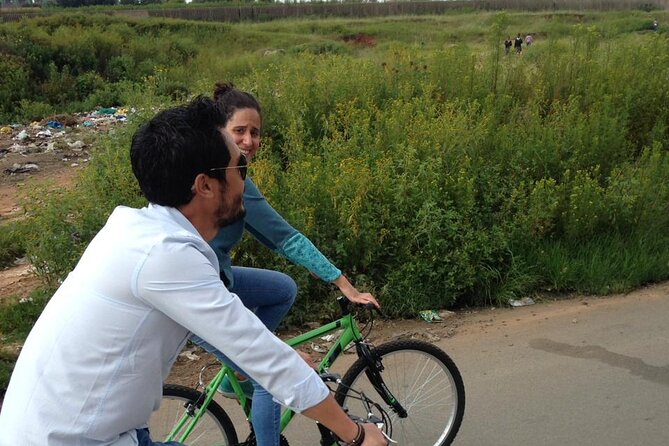
During the bicycle tour, participants cycle past the former residence of Archbishop Desmond Tutu, a revered South African civil rights leader and Nobel Peace Prize laureate. Tutu’s home stands as a poignant reminder of the crucial role he played in the anti-apartheid movement, using his powerful voice and moral authority to challenge the injustices of the apartheid regime.
From this humble abode, Tutu inspired millions with his unwavering pursuit of equality, freedom, and human dignity.
His steadfast commitment to nonviolent resistance and reconciliation paved the way for a more just and inclusive South Africa.
This simple dwelling serves as a testament to the transformative power of courageous leadership and the enduring impact of one person’s moral conviction.
Experiencing Soweto’s Vibrant Community
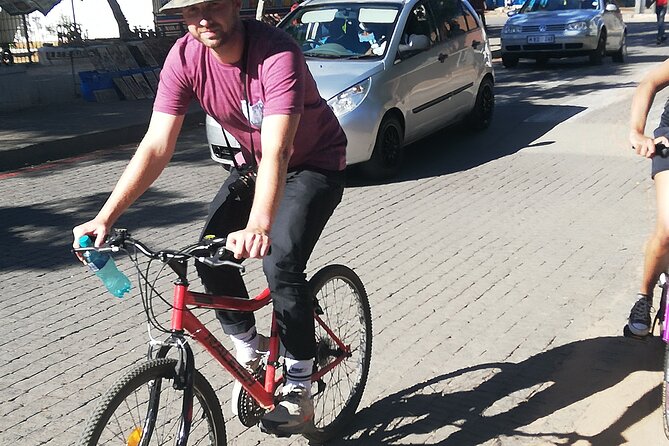
Frequently, the bicycle tour offers an immersive glimpse into Soweto’s vibrant community, where residents proudly celebrate their rich cultural heritage and resilience in the face of past oppression.
Visitors cycle through bustling markets, alive with the sounds of lively chatter, the scent of traditional cuisine, and the energy of locals going about their daily lives.
Along the way, the guide shares compelling stories that capture the spirit of this iconic township – from the iconic Soweto uprising to the enduring legacy of leaders like Nelson Mandela.
Highlights of the Guided Bicycle Tour
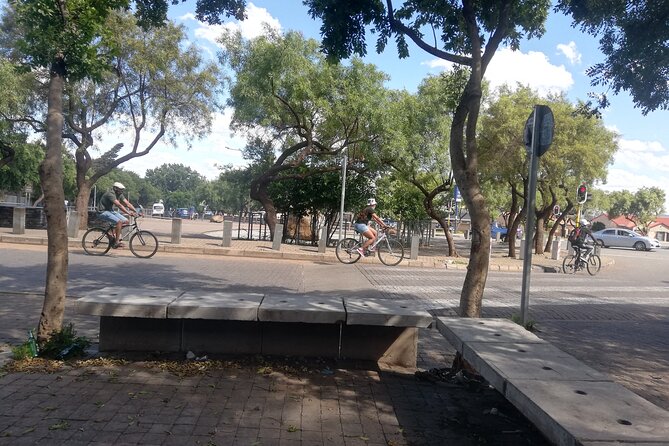
On the guided bicycle tour, visitors cycle past the former homes of iconic South African figures like Nelson Mandela and Archbishop Desmond Tutu, learning about their pivotal roles in the anti-apartheid struggle.
At Orlando West High School, the guide recounts the harrowing events of the 1976 student uprisings, offering a poignant glimpse into Soweto’s history of resistance and resilience.
Heartbreaking stories of how ordinary citizens banded together to fight for justice and equality.
Awe-inspiring accounts of the community’s unwavering determination in the face of adversity.
A profound sense of the transformative power of collective action and social change.
What’s Included in the Tour
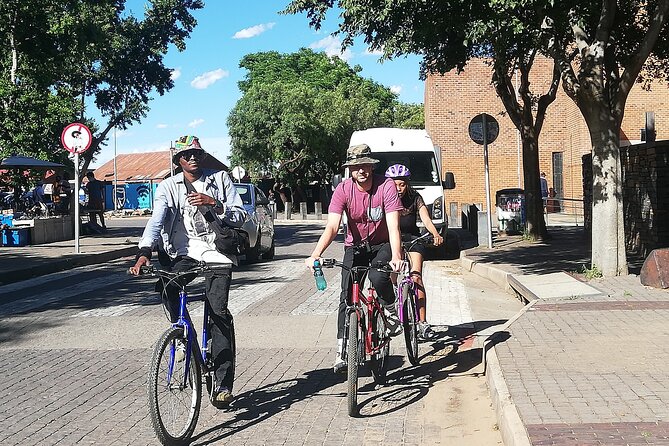
The bicycle tour includes round-trip transportation to Soweto, an experienced guide who provides captivating commentary, bottled water to stay hydrated, and entrance fees to all sites visited.
Visitors also receive a bicycle and helmet for the duration of the cycling tour. This allows participants to fully enjoy the history and culture of Soweto without worrying about logistics.
The guide is knowledgeable about the area’s significant landmarks, such as the former homes of Nelson Mandela and Archbishop Desmond Tutu, as well as the iconic Orlando West High School where the 1976 student uprisings took place.
With these amenities, guests can focus on exploring Soweto’s rich heritage and gaining a deeper understanding of South Africa’s Apartheid history.
Pickup and Tour Details
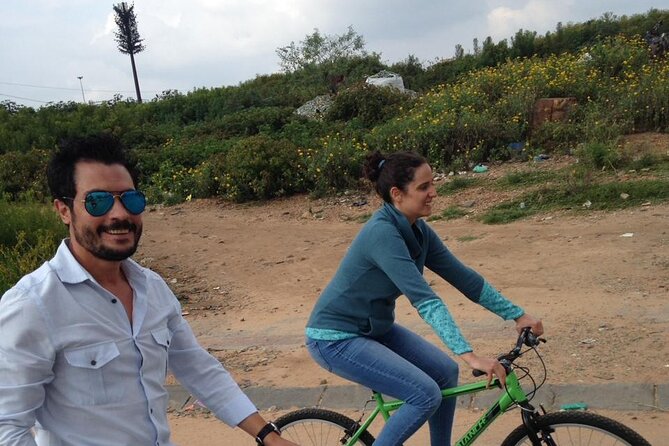
Pickup for the Soweto bicycle tour can be arranged from private homes and hostels, with the pickup location confirmed up to 24 hours before the activity. The tour is a private experience, meaning only your group will participate.
It’s wheelchair and stroller accessible, and is situated near public transportation, making it convenient for most travelers to join.
This immersive tour offers:
- A chance to explore Soweto’s rich history and connect with its vibrant culture
- Opportunities to gain a deeper understanding of the impact of Apartheid
- Unforgettable moments of witnessing the resilience and spirit of the Soweto community
Whether you’re a history buff, a cycling enthusiast, or simply seeking a unique cultural experience, this Soweto bicycle tour promises an unforgettable adventure.
Frequently Asked Questions
Is the Tour Suitable for Families With Young Children?
Yes, the tour is suitable for families with young children. It’s wheelchair and stroller accessible, and the moderate cycling pace makes it manageable for kids. The historical insights and guided commentary make it an engaging educational experience for all ages.
Can Participants Bring Their Own Bicycles?
Participants can generally bring their own bicycles on the tour, though the operator typically provides them. This allows for a more personalized experience but may require additional coordination with the tour company beforehand.
Are There Any Restrictions on Taking Photographs?
There are typically no restrictions on taking photographs during the tour, allowing participants to capture the sights and experiences. However, it’s considerate to ask permission before photographing people, especially in sensitive areas. The guide can provide advice on respectful photography.
What Is the Minimum and Maximum Group Size?
The tour has a private group format, so there’s no minimum or maximum group size. Participants can enjoy a personalized experience, exploring Soweto’s history with only their group. The flexible group size allows for an intimate and tailored tour.
Can the Tour Be Customized for Specific Interests?
Yes, the tour can be customized to specific interests. The operator offers flexibility to tailor the experience, allowing guests to explore areas or topics of particular interest during the private tour.
Recap
The Soweto Bicycle Tour offers a powerful and immersive exploration of the anti-apartheid movement, allowing visitors to connect with the resilience and courage of its trailblazers.
By cycling through Soweto, participants gain a deeper understanding of the sacrifices and struggles that paved the way for a more just and equitable society in South Africa.
More Tours in Johannesburg
More Tour Reviews in Johannesburg
Not for you? Here's more things to do in Johannesburg we have recnetly reviewed
- Innercity Walking Tour
- Airport Transfers Johannesburg
- Private Half Day Authentic Soweto Tour From Johannesburg or Pretoria
- Full-Day Soweto, Apartheid Museum and Lunch Tour
- Cradle of Humankind World Heritage Site
- Soweto /Johannesburg and Apartheid Museum Guided Full Day Tour
- Lesedi Cultural Village & Cradle of Humankind Guided Tour
- Unique Street Food Tour From at Least 6 Different Cultures!
- 3-Day Kruger National Park Safari Including Breakfast and Dinner
- Lesedi Cultural Village
- Cradle of Human Kind Tour – Maropeng and Wondercave Tour
- Cradle of Human Kind Tour and Lesedi Cultural Village Day Tour
